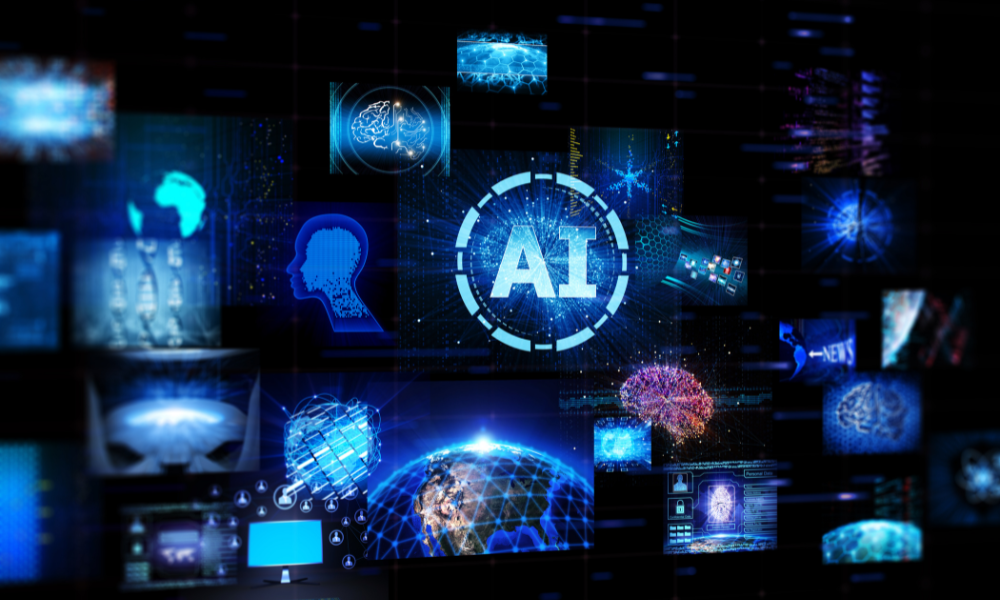
In the fast-paced world of technology, Artificial Intelligence (AI) and Machine Learning (ML) have emerged as two of the most sought-after fields. Both are revolutionizing industries and shaping the future of how businesses and individuals interact with data. Yet, despite being closely related, they are not the same. If you are considering a career in this domain, it is important to understand the differences between Artificial Intelligence training and Machine Learning Training—both in terms of concepts and skill-building paths.
This article explores the key differences, training requirements, applications, and career opportunities associated with AI and ML, helping you decide which path is right for you.
Understanding Artificial Intelligence (AI)
Artificial Intelligence is the broad concept of creating machines that can mimic human intelligence. It focuses on developing systems capable of reasoning, decision-making, problem-solving, and adapting to new data.
Key Features of AI:
- Simulates human intelligence
- Can perform tasks like speech recognition, decision-making, and image processing
- Encompasses Machine Learning, Deep Learning, Natural Language Processing (NLP), Robotics, and Computer Vision
AI Training Programs generally cover multiple subfields to give learners a holistic understanding of how machines can “think” and “act” like humans.
Understanding Machine Learning (ML)
Machine Learning is a subset of AI that enables systems to learn from data and improve performance without explicit programming. Instead of following fixed rules, ML algorithms identify patterns, make predictions, and continuously adapt.
Key Features of ML:
- Focused on data-driven learning
- Uses algorithms to analyze datasets and improve over time
- Includes techniques such as supervised learning, unsupervised learning, and reinforcement learning
ML training tends to be more specialized, focusing heavily on mathematics, statistics, programming, and data analysis.
Artificial Intelligence Training – What to Expect
Artificial Intelligence Training is broad and interdisciplinary. A typical AI course introduces learners to multiple AI technologies and tools.
Common Topics Covered:
- Fundamentals of AI and intelligent systems
- Neural networks and deep learning
- Natural Language Processing (NLP)
- Robotics and automation
- Computer vision applications
- AI ethics and governance
Skills Gained:
- Designing AI-powered applications
- Understanding multi-domain AI systems
- Knowledge of AI frameworks like TensorFlow, PyTorch, and Keras
Ideal For:
- Beginners interested in AI fundamentals
- Professionals aiming to work in diverse AI roles
- Leaders and decision-makers exploring AI adoption for business
Machine Learning Training – What to Expect
Machine Learning Training dives deeper into data-centric learning methods. Courses are often math-intensive and require strong programming skills.
Common Topics Covered:
- Data preprocessing and cleaning
- Supervised vs. unsupervised learning
- Reinforcement learning
- Regression, classification, and clustering techniques
- Model evaluation and optimization
- Deployment of ML models
Skills Gained:
- Building ML algorithms from scratch
- Statistical analysis and probability-based decision-making
- Implementing ML models with Python, R, and MATLAB
- Using ML libraries like Scikit-learn, TensorFlow, and XGBoost
Ideal For:
- Data scientists and engineers
- Analysts wanting to specialize in predictive modeling
- Professionals interested in applied data-driven problem-solving
AI vs. Machine Learning Training: A Comparison
Aspect | Artificial Intelligence Training | Machine Learning Training |
Scope | Broad – covers multiple domains of AI | Narrower – focused on data and algorithms |
Focus | Human-like intelligence, decision-making, automation | Data patterns, predictions, optimization |
Mathematical Depth | Moderate | High (linear algebra, probability, statistics) |
Programming Skills | Useful but not always mandatory | Essential (Python, R, etc.) |
Tools & Frameworks | TensorFlow, PyTorch, Keras, OpenCV, NLP frameworks | Scikit-learn, TensorFlow, XGBoost, R libraries |
Career Roles | AI Engineer, NLP Specialist, Robotics Developer | ML Engineer, Data Scientist, Predictive Analyst |
Career Opportunities in AI and ML
Careers in AI:
- AI Engineer
- Robotics Developer
- NLP Specialist
- Computer Vision Expert
- AI Product Manager
Careers in ML:
- Machine Learning Engineer
- Data Scientist
- Research Scientist
- Predictive Analytics Specialist
- Business Intelligence Analyst
With growing adoption of automation, digital transformation, and big data, both AI and ML professionals are in high demand across industries such as healthcare, finance, automotive, cybersecurity, and e-commerce.
Which Training Should You Choose?
The choice between AI training and ML training depends on your interests and career aspirations:
- Choose AI training if you want to explore a broader field that covers multiple technologies, and you’re interested in robotics, natural language, or building intelligent systems.
- Choose ML training if you prefer working directly with data, enjoy statistical analysis, and want to build predictive models for real-world applications.
Both paths offer exciting opportunities and often overlap, so many professionals pursue a combination of AI and ML skills to stay competitive.
While Artificial Intelligence and Machine Learning are closely linked, their training programs differ in scope, focus, and career paths. AI training equips learners with a wide understanding of intelligent systems, while ML training specializes in algorithms and data-driven models.
If you are looking to upskill in the tech industry, understanding the difference between AI And ML Training will help you make an informed decision about where to start. Regardless of the path you choose, both offer lucrative careers and the chance to work on cutting-edge technologies that are shaping the future.

